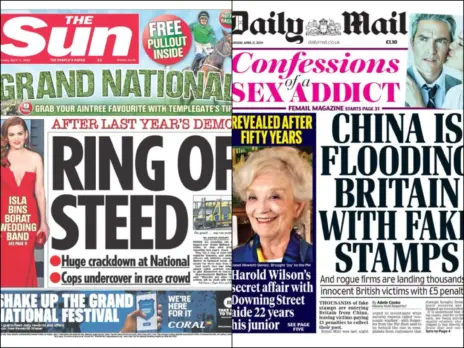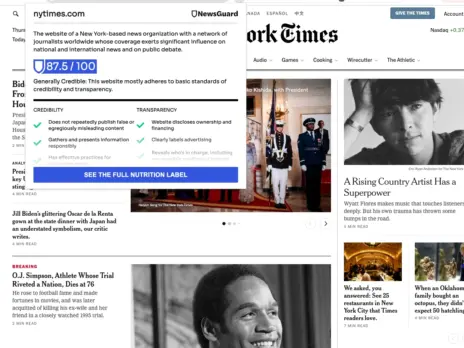When we started having a readers’ editor at The Guardian some 10 years ago I thought there was an inevitability about media organisations becoming more transparent and accountable. I still think that, but I was wrong in imagining that other newspapers would follow the model – increasingly common around the world – of appointing some form of independent ombudsman.
I suspect there are three reasons why not and they’re to do with issues of responsibility, control and cost.
The first line of resistance is that the editor him/herself is responsible for the content, and that outsourcing the complaints department is a way of outsourcing responsibility. I agree: the editor is, indeed, ultimately responsible – morally and in law – for everything published in his or her name.
But it’s not quite that simple. For one thing, more and more people are questioning whether there isn’t a potential conflict in an editor being responsible both for commissioning the journalism and for sitting in judgement on it – in effect, being prosecutor, judge and jury.
Another objection lies in the sheer volume of content being produced around the clock by many modern newspapers – in print, online, in text, audio and video, in blogs, talkboards, podcasts, in bumper weekend editions and magazines across six or seven days a week. It is increasingly unimaginable that many editors can monitor more than a fraction of what is being put out in his or her name. We are light years away from the world of, say, 20 or 30 years ago, when a diligent editor could hope to read most, if not all, of a 20 or 30-page newspaper in advance of publication..
As we move further down the Web 2.0 road – ever more content being hosted or distributed by newspaper websites and beyond – how on earth is any editor supposed on be aware of slips, errors or injustices perpetrated in their name?
As important a factor is doubtless the loss of control implied. Editors have been used to being omnipotent figures, in sole charge of who is allowed a voice in their newspaper and who isn’t.
It is, I now appreciate better, a very radical move to place even a few inches of your own newspaper beyond your direct control. It does mean that your judgements, actions, ethical standards and journalism can be held up to the light.
We can’t allow ourselves to be be blind to profound shifts in how we – and the wider public – think of journalism.
Since a free press first evolved we have derived our authority from a feeling – a sense, a pretence – that journalism is, if not infallible, something close to it. We speak of ourselves as being interested in the truth, the real truth. We’re truth seekers, we’re truth tellers, we tell truth to power.
As a marketing proposition, it had its merits, even if the claim has probably always been treated with some scepticism. As journalists, we’re doing well if we confine ourselves to being truthful about what we know, which is often fairly circumscribed. We’re doing better if we’re also truthful about what we don’t know.
This is especially so the more news organisations have moved away from the role of being simple, relatively passive reporters. It’s inevitable that, the more we move from reporting to advocacy, campaigning and persuasion, the more people will question everything from our motives to our methods. Handing down tablets of stone and telling people ‘this is how it is’ is over.
Readers now have real-time access to much of the information which was once our exclusive preserve. A huge amount of information is simultaneously released on official websites, enabling millions of people to check our version of events against the original.
Today there are millions of fact checkers out there. Millions of them have their own blogs or websites. So we can refuse systematically to correct or clarify our journalism, but we would be foolish to imagine that it will therefore go uncorrected or unclarified. It will: all that will happen is that it will take place elsewhere. It’s surely uncomfortable knowing that our failings may be revealed and widely discussed elsewhere, with not a word appearing in our own newspapers?
A second reason why the old era of journalism is over is that, increasingly, the people on whom we report will actively use these new channels of communication to question us, if not actively discredit us. Look at the Scientologists’ video ambush on the ‘exploding tomato’that was John Sweeney.
Various technological and economic forces are bearing down on what we do so forcefully and, frankly, so fast, that the very nature of journalism is being challenged.
What they all have in common is a more level playing field between journalists (where they are involved at all) and readers; a blurring of the distinction between publisher and recipient; more transparency; more collaboration; more give and take. The sense of editorial content being produced behind high castle walls is foreign.
Trust has to be re-earned all the time. It is essential to compete in a world in which many of the other aspects of what we do can be done as well, or better, or faster, or more interactively, elsewhere. In a 24/7 world we all have to re-examine all the time the fundamental question of what journalism is.
Let’s try a few things conventional journalism is not:
• It’s not about delivering the truth, the whole truth and nothing but the truth. No-one believes that any more if they ever did.
• It’s not an infallible way of ascertaining what is going on around us.
• It’s not defined by an arbitrary moment in the 24-hour clock to suit the historic schedules of print plants, distribution chains and wholesale delivery.
It’s rarely something to which we, as journalists, have exclusive knowledge of, or access. It is something more fluid… a much more interacive thing than the tablet of stone.
It is about us saying ‘this is how it seems to us; it’s not the definitive word on the subject by any means; some of you will know more about this; we can collaborate to try and get closer to the truth on this story; this is how you can contribute.”
Journalism becomes a never-ending organic business of placing material in the public domain, of adding to it, clarifying it, correcting it, adding something here, subtracting something there, editing, contextualising, analysing, responding. Everything we do will be more contestable, more open to challenge and alternative interpretation.
The question is: how will big mainstream news organisations – with a foot, sometimes awkwardly in each camp – cope with these issues? How will they negotiate the apparent contrast between the moated castle of the old world, where even a readers’ editor or ombudsman seems a step too far, and the wide open spaces of the new world?
I don’t think ombudsmen are a panacea to all the challenges this new digital age is throwing up. But I think a refusal to have some kind of independent system embedded within news organisations, as we all come under more and more intense scrutiny, looks increasingly odd.
Email pged@pressgazette.co.uk to point out mistakes, provide story tips or send in a letter for publication on our "Letters Page" blog







